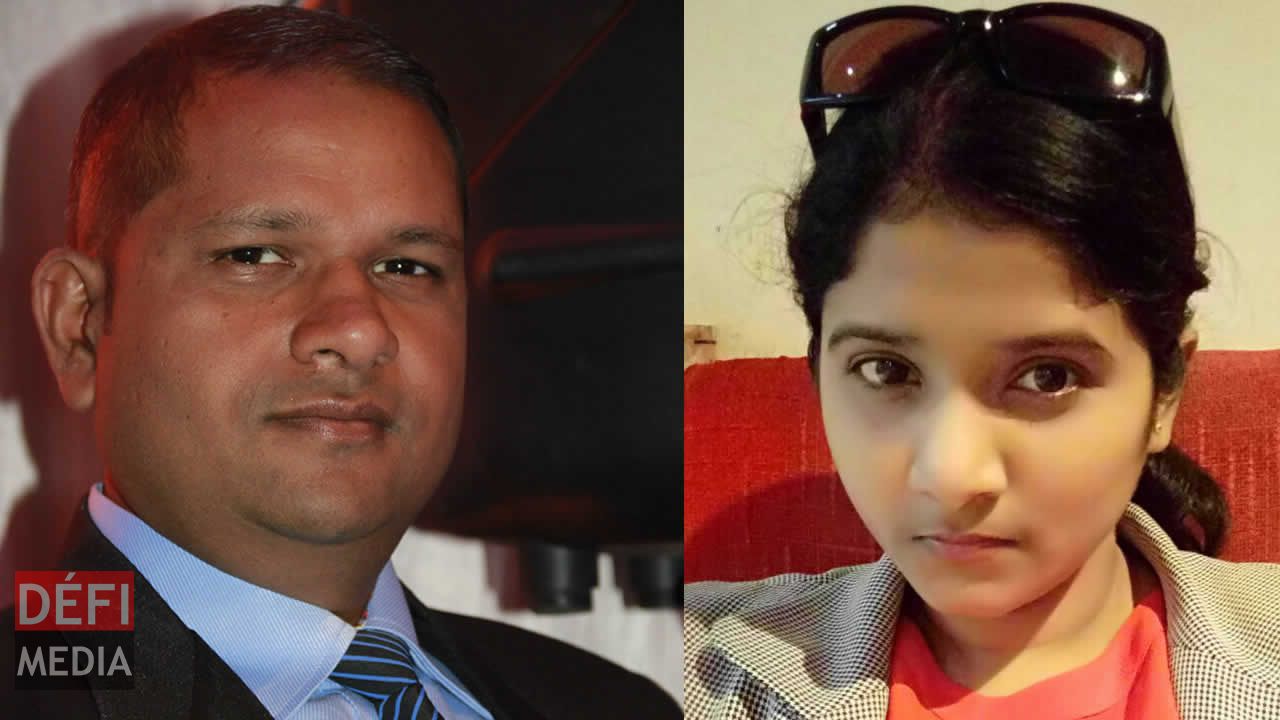
Les conclusions du bureau du Directeur des Poursuites Publiques (DPP) dans l’affaire Tarolah ont été rendues publiques ce vendredi 30 novembre. Dans un communiqué émis dans l’après-midi, le DPP explique qu’il s’en remet à la Speaker de l’Assemblée nationale, Maya Hanoomanjee. Il affirme qu'il revient à celle-ci de décider si les actions de Kalyan Tarolah constituent un outrage à l'Assemblée nationale.
Publicité
Dans une déclaration à Radio Plus, Me Satyajit Boolell a expliqué que ce communiqué a été émis dans un souci de transparence. Ce, afin d’expliquer comment cette décision a été prise.
L’affaire a éclaté en septembre 2017. Latchmee Devi Adheen, une habitante de Quatre-Sœurs, avait fait une déposition à la police, accusant le député Kalyan Tarolah (qui assumait aussi les fonctions de Parliamentary Private Secretary), de lui avoir envoyé des photos obscènes à travers WhatsApp.
La jeune femme avait concédé avoir échangé des sextos avec le député MSM dans l’espoir d’obtenir un job au sein de Mauritius Telecom. Elle l'avait accusé de lui avoir envoyé des photos obscènes qui ont été prises à l'Assemblée nationale.
Pour soutenir ses dires, Lutchmee Devi Adheen a remis aux policiers trois photos et a relaté aux enquêteurs dans quelles circonstances elle était entrée en contact avec Kalyan Tarolah.
Elle allègue que le député lui aurait promis qu’elle serait embauchée à Mauritius Telecom car il entretient de bonnes relations avec le Chief Executive Officer de la compagnie de télécommunications.
Lutchmee Devi Adheen a également accusé Kalyan Tarolah d’avoir «fait fuiter les photos et les vidéos qu’elle lui a envoyées».
Face à ces accusations, Kalyan Tarolah avait démissionné comme PPS le 23 octobre 2017. Il siège toujours comme député du MSM à l'Assemblée nationale.
>> A lire aussi : Kalyan Tarolah : portrait d’un ex-enseignant dans l’œil du cyclone
Ci-dessous le communiqué du bureau du DPP :
COMMUNIQUE
Re: Honourable Kalyan TAROLAH, Member of the National Assembly
(PMP 3442/18 - OB 972/17 CCID - Breach of ICTA)
Introduction:
Our advice has been sought by the Commissioner of Police in a matter, which attracted wide media coverage and public outrage, involving Honourable Kalyan Tarolah. He is alleged to have used his private mobile phone to send indecent and obscene messages through WhatsApp. Moreover, it is also alleged that at the time he sent some of those indecent and obscene messages, he was physically present in the National Assembly which was in session.
The enquiry has also revealed that the receiver of the alleged obscene messages and Honourable Tarolah knew each other quite well and it is safe to say that they were more than mere acquaintances, given the tenor of the messages that were exchanged between them through WhatsApp over a prolonged period of time.
The Relationship:
In considering the evidence gathered during the enquiry, we have paid particular attention to the relationship which existed between the complainant and Honourable Tarolah in as much as it would have an important bearing on the advice to be tendered in this case.
One Miss L. D. A (the complainant), aged 26 at the material time, alleged that she met Honourable Tarolah at a wedding in September 2016. Thereafter, they were in regular contact through WhatsApp.
The enquiry has revealed that between 25 December 2016 and 17 September 2017, there had been a constant exchange of WhatsApp messages between them. During that period of time on several occasions they had both sent to each other messages, photos and videos which can be described as indecent, obscene and of a sexual nature. It also came out during the enquiry that, on 20 April 2017 and 17 July 2017, Miss L.D.A sought the help of Honourable Tarolah to secure a job for her, and this can be gathered from WhatsApp messages exchanged between them.
The enquiry has therefore disclosed that their relationship was a consensual one and there is no evidence that Miss L.D.A had ever been harassed by Honourable Tarolah.
The Indecent and Obscene Messages of 11 April 2017:
In a statement given on 02 October 2017 at CCID, Miss L.D.A alleged that in the night of 11 April 2017 (some 6 months before), Honourable Tarolah sent her a number of messages and photos while he was in the National Assembly. The WhatsApp messages retrieved from her mobile phone do confirm this. And it is to be noted that the Hansard also confirms that the National Assembly sat on 11 April 2017 and that Honourable Tarolah must have been present at that sitting since he took part in the debate on the Land Drainage Authority Bill.
A perusal of the messages exchanged that night between them show that Honourable Tarolah did send her certain indecent and obscene messages and photos rife with sexual connotations. The evidence shows that Miss L.D.A had also sent messages to him on that night which could be described as indecent and containing sexual undertones. The evidence also reveals that she was a willing participant in the exchange of messages.
Advice Sought by the Commissioner of Police:
Our advice has been sought by the Commissioner of Police as to the “course of action” to be taken by the police in case OB 972/17 CCID. It is to be noted that there has been no suggestion of prosecution by the police.
We have thoroughly reviewed all the evidence gathered by the police with a view to deciding whether the evidence discloses possible offences under the laws of Mauritius. More particularly, we have analysed the evidence to see whether an offence under the Information and Communication Technologies Act (the ICTA) or the National Assembly (Immunities, Privileges and Powers) Act has been disclosed.
Breach of the Information and Communication Technologies Act (ICTA):
Section 46 (ga), as it stood at the material times, provides that –
Any person who –
(ga) uses telecommunication equipment to send, deliver or show a message which is obscene, indecent, abusive, threatening, false or misleading, or is likely to cause distress or anxiety; shall commit an offence.
There can be no doubt that Honourable Tarolah and Miss L.D.A did use telecommunication equipment, mobile phones, to send to each other obscene and indecent messages, photos and videos. However the law requires more than the mere sending of a message. The law requires that the person sending the person must have intended the message to be obscene to its recipient or at least should have anticipated that the receiver would view the message as being obscene.
Our Office therefore takes the view that although it can established that both Miss L.D.A and Honourable Tarolah did send to each other indecent and obscene messages, photos and videos via WhatsApp, they lacked the criminal intent necessary for the purpose of establishing an offence under section 46 (ga) of ICTA.
Our Office takes this view basing itself on the relationship that existed between them, which can be culled from the numerous messages exchanged between them over a prolonged period of time, and the history of those messages show that they had repeatedly sent to each other obscene and indecent messages and photos over that time. In such circumstances, it will be difficult to prove that when they sent those messages to each other they knew, or ought to have known, that the person receiving the messages would view them as obscene or indecent. On the contrary, the evidence shows that they were both willing participants and recipients of those obscene and indecent messages.
Contempt of the National Assembly:
Given the allegations of Miss L.D.A that Honourable Tarolah sent her certain obscene and indecent messages and photos on the night of 11 April 2017 when he was in the National Assembly which was in session, our Office had to consider whether Honourable Tarolah may have committed a Contempt of the National Assembly.
Section 6(1)(i) of the National Assembly (Privileges, Immunities and Powers) Act provides that the following acts, matters and things constitute the offence of contempt of the Assembly –
“Misbehaving in a disrespectful, indecorous, improper or disorderly manner, within the precincts of the Assembly at any time between the commencement and final termination of a sitting on any day on which the Assembly meets.”
Our Office takes the view that the sending of obscene and indecent messages and photos on a mobile phone while being in the House at a time when it was in session amounts to misbehaving in a disrespectful, indecorous and improper manner. Those acts do bring serious disrepute to our august National Assembly and shows a total lack of decorum and respect by the Honourable Member concerned.
Therefore our Office is of the considered view that a prima facie case of contempt of the National Assembly has been disclosed by the enquiry. Unfortunately, however, as matters stand, a prosecution for such a contempt cannot be advised by us for procedural reasons.
Section 7 of the same Act provides that no prosecution for an offence under this Act shall be instituted except by the Director of Public Prosecutions and in accordance with the procedure laid down in that behalf in the Standing Orders of the Assembly.
According to Standing Order 74 “offences provided for in the National Assembly (Privileges, Immunities and Powers) Act shall be dealt with in the following manner …” and there follows a very long and specific procedure that needs to be followed before a Member loses his parliamentary immunity and becomes amenable to prosecution.
Standing Order 74(1) provides that a privilege complaint must come from a member of the House and that “a Member who wishes to raise a privilege complaint shall give written notice of the matter to the Speaker on a sitting day as soon as reasonably practicable after the Member had notice of the alleged contempt or breach of privilege.”
It is then up to the Speaker, and the Speaker alone, to decide whether the complaint does amount to a contempt of the Assembly and where she does, she will refer the matter to the DPP. And where she does not find that the complaint discloses an offence under the National Assembly (Privileges, Immunities and Powers) Act then that is the end of the matter. (Standing Order 74(5)).
The alleged acts of the Honourable Member in sending the indecent and obscene messages, photos and videos while he was in the National Assembly came into the public domain as far back as September or October 2017 and was widely publicised and even attracted public condemnation. It may well be that there has until now been no privilege complaint motion by a Member given that there was an ongoing police enquiry.
Conclusion:
For the reasons set forth above, we have today advised the Commissioner of Police to bring to the attention of the Speaker the content of the present Communique for any action which she may deem fit.
And we have also advised the Commissioner of Police that the enquiry into OB 972/17 be stayed pro-tem.
Office of the Director of Public Prosecution
30 November 2018

Notre service WhatsApp. Vous êtes témoins d`un événement d`actualité ou d`une scène insolite? Envoyez-nous vos photos ou vidéos sur le 5 259 82 00 !























![[Info Soirée] : « La vérité enterrée refait surface »](https://defimedia.info/sites/default/files/styles/square_thumbnail/public/thumbnail_240425.jpg?itok=cCbHkuD5)